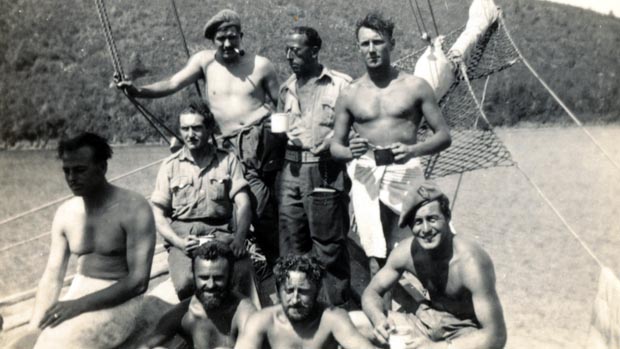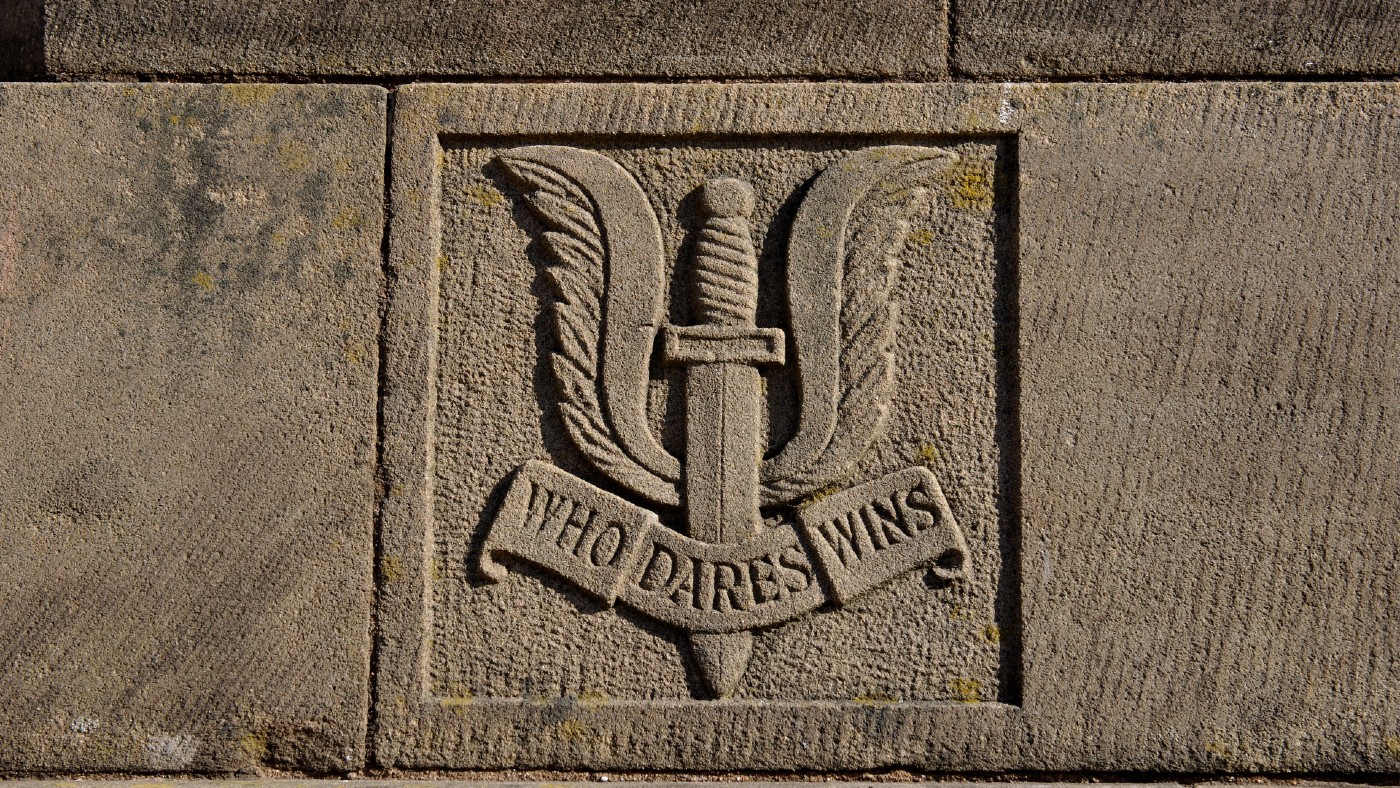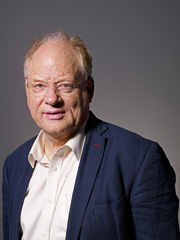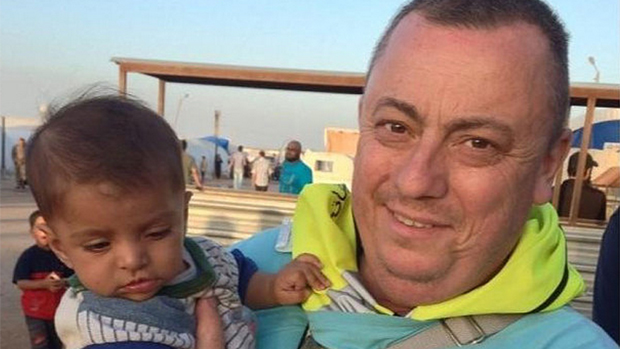Meet the SBS: one man strangled nine Germans with his bare hands
Like the SAS, the tough-as-nails Royal Marines section dates back to Winston Churchill's day

A free daily email with the biggest news stories of the day – and the best features from TheWeek.com
You are now subscribed
Your newsletter sign-up was successful
RIGHTLY or wrongly, the reputation of the Special Boat Service has suffered as a result of the failed operation to rescue British hostage Christopher McManus and his Italian colleague Franco Lamolinara from the hands of their Nigerian captors.
Until more details of the raid are released it's impossible to state with any certainty what went wrong.
One thing that is certain, however, is that the Special Air Service won't have too much sympathy for their sister regiment, whose men they refer to disparagingly as the 'Val Doonicans' on account of the white polo-neck sweaters they sport.
The Week
Escape your echo chamber. Get the facts behind the news, plus analysis from multiple perspectives.

Sign up for The Week's Free Newsletters
From our morning news briefing to a weekly Good News Newsletter, get the best of The Week delivered directly to your inbox.
From our morning news briefing to a weekly Good News Newsletter, get the best of The Week delivered directly to your inbox.
The SAS recruit from the Army, the SBS predominantly from the Royal Marine Commandos, with each regiment believing itself to be the best.
It has been asked why the SBS, who specialise in amphibious operations, were used in Nigeria and not the SAS. The answer, as The Daily Telegraph explains, is that it was the SBS's turn as the current 'Stand-By Squadron' for counter-terrorism.
This post is rotated through the four SAS and four SBS squadrons every six months. In any case, the SBS and SAS are trained to the same high standards, as they have been since the early days of their existence in World War Two.
Both the SAS and SBS sprang from No 8 Commando, a unit established in the summer of 1940 on the instructions of Prime Minister Winston Churchill. While No 8 Commando achieved little before its disbandment in 1941, it inspired Roger Courtney to form the Special Boat Section (as it was first called) and David Stirling the Special Air Service.
A free daily email with the biggest news stories of the day – and the best features from TheWeek.com
The SBS used canoes in their training, the SAS parachutes. It was the former who struck first when two of their number landed on the Italian coast in June 1941 and blew up a munitions train. Five months later the SAS launched their first operation, dropping by parachute into the Libyan desert to raid German airfields. The mission was a disaster with only 21 of the 55 soldiers returning, and Stirling had to deploy all his ingenuity to ensure the unit's survival in the following months.
In 1942, following Courtney's return to the UK, the SBS was attached to the SAS under the command of Stirling. For a few months they operated in tandem but, when Stirling was captured in January 1943, the SBS once again become a separate entity under the command of Lord George Jellicoe and was renamed the Special Boat Squadron.
Its first operation on Crete in June 1943 was a stunning success: 30 SBS soldiers landed by submarine on the German-held island, marched 60 miles north over rugged terrain and blew up fuel dumps and aircraft.
A week later another SBS operation, this one on Sardinia, ended in disaster when the raiders were betrayed to the Italians by their American interpreter.
At around the same time, on the Mediterranean island of Lampedusa, an SAS detachment was also experiencing failure. One of the men on that raid, Captain Tony Greville-Bell, told me years later: "SAS operations never go according to plan, I can't remember one that ever did. But you have to sort of make up ways to get round that."
The SBS officer most effective at making up ways to circumvent operational setbacks was Anders Lassen, a Dane who throughout 1944 led SBS raiding parties (above) against the German-held islands of the Dodecanese. One of the men who served under Lassen was Doug Wright who, according to his 2008 obituary in The Daily Telegraph, "strangled nine Germans with his bare hands" during the war.
When I interviewed Wright in 2002 he remembered: "There was a lot of killing in the Dodecanese. Sometimes we'd bring one [a German] back for interrogation but mostly we'd just kill them. We didn't really have much respect for them." Such was the sustained ferocity of the SBS attacks in the Dodecanese that the Germans were forced to garrison the islands with an additional 4,000 troops in early 1944, men that were desperately needed in France and in Russia.
Anders Lassen was killed leading an SBS attack in northern Italy in April 1945 and for his gallantry he was awarded a posthumous Victoria Cross, the only occasion that the medal has been bestowed on a member of the British special forces.
Within weeks of Lassen's death the war in Europe was over and the SBS was disbanded, to be reformed post-war and renamed the Special Boat Service.
The failure to rescue the two hostages in Nigeria will hurt David Cameron more than it will the SBS, who according to The Times were unable to carefully pre-plan the operation because it "was launched in response to a perceived emergency". Nevertheless the SBS are reported to have killed or captured the kidnappers and suffered no casualties themselves.
What the SBS won't be able to escape, however, are the smirks from their SAS rivals.
Gavin Mortimer is the author of The SAS in World War II, published by Osprey, and the upcoming The SBS in World War II
-
 ‘This is something that happens all too often’
‘This is something that happens all too often’Instant Opinion Opinion, comment and editorials of the day
-
 House votes to end Trump’s Canada tariffs
House votes to end Trump’s Canada tariffsSpeed Read Six Republicans joined with Democrats to repeal the president’s tariffs
-
 Bondi, Democrats clash over Epstein in hearing
Bondi, Democrats clash over Epstein in hearingSpeed Read Attorney General Pam Bondi ignored survivors of convicted sex offender Jeffrey Epstein and demanded that Democrats apologize to Trump
-
 MoD vs BBC: Panorama stands by SAS death squads exposé
MoD vs BBC: Panorama stands by SAS death squads exposéTalking Point New evidence suggests one squadron may have unlawfully killed 54 Afghans in six months
-
 Islamic State 'plotting cyber attacks on British hospitals'
Islamic State 'plotting cyber attacks on British hospitals'Speed Read Osborne warns of online sabotage – and Cameron announces £2bn for special forces, including SAS
-
 Britain 'cannot defend itself against Russia'
Britain 'cannot defend itself against Russia'Speed Read UK 'could not cope' if Putin attacked, say military chiefs, who warn that defences have been 'decimated'
-
 Osborne’s cuts could reduce Army to virtually useless
Osborne’s cuts could reduce Army to virtually uselessIn Depth Cuts will be so severe that Nato could classify our reduced forces not as an army, but a gendarmerie
-
 Islamic State hostages: was it wrong to impose a media blackout?
Islamic State hostages: was it wrong to impose a media blackout?Speed Read Alan Henning's brother says it was 'disgusting' that his family were virtually gagged over kidnapping